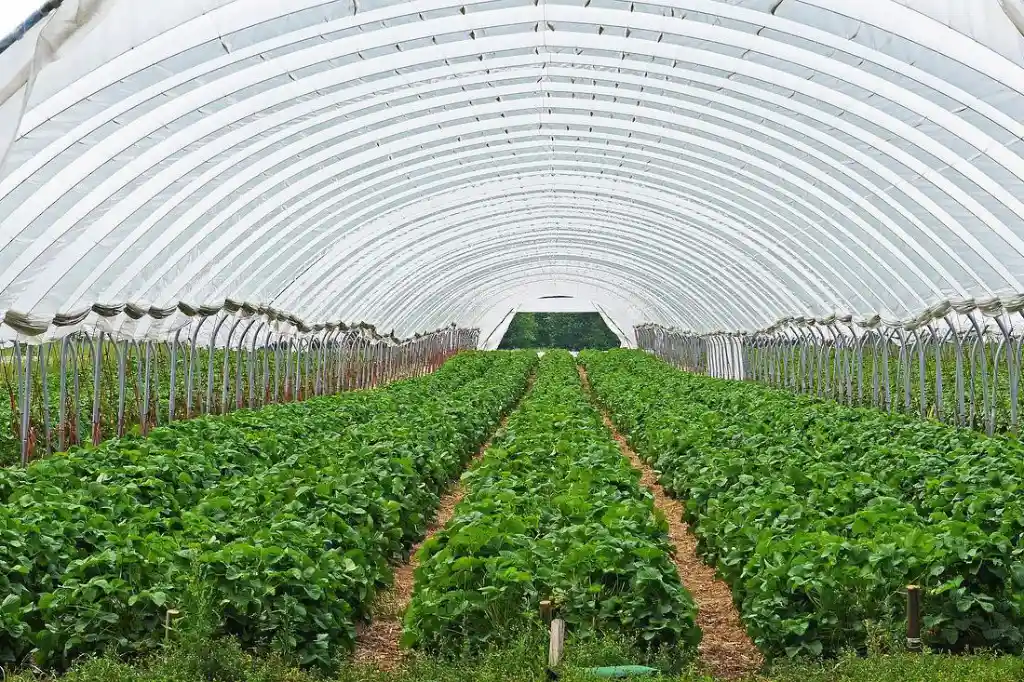The quest for sustainable and eco-friendly pest control solutions in agriculture and growing operations has led to the exploration of alternative methods, and one promising contender is hypochlorous acid (HOCl).
This naturally occurring compound, generated through the electrolysis of saltwater, is gaining recognition for its efficacy in managing various pests that can wreak havoc on crops. In this article, we will explore the pests that HOCl can effectively target in farming and growing operations, and how this versatile solution is making strides in sustainable pest management.
Hypochlorous Acid for Pest Management
1. Aphids
Aphids, those tiny, sap-sucking insects, are a notorious menace in agriculture. They can infest a wide range of crops, causing damage through feeding and transmitting plant diseases. HOCl has proven effective in controlling aphids by disrupting their cell membranes and causing dehydration, ultimately leading to their demise.
2. Spider Mites
Spider mites are tiny arachnids that feed on plant sap and can quickly multiply, decimating crops if left unchecked. HOCl can effectively kill spider mites by breaking down their protective waxy coatings and disrupting their cellular processes.
3. Whiteflies
Whiteflies, known for their prolific breeding and ability to transmit plant viruses, pose a significant threat to crops. HOCl can target whiteflies, disrupting their feeding habits and reducing their numbers in infested areas.
4. Fungus Gnats
Fungus gnats can be a nuisance in growing operations, particularly in greenhouse environments. HOCl is used to control these pests by disrupting larval growth in the soil. Doing so prevents them from becoming adults and reproducing.
5. Thrips
Thrips are another common pest in agriculture, damaging crops by puncturing plant cells and feeding on the contents. HOCl can effectively control thrips by contact, breaking down their exoskeletons and causing dehydration.
6. Bacteria and Fungi
HOCl is not limited to targeting insect pests; it also shows efficacy against various plant pathogens, including bacteria and fungi. This dual action makes it a versatile solution for both pest and disease management.
Advantages of HOCl in Pest Control
- Environmentally Friendly: HOCl is non-toxic to humans, animals, and beneficial insects when used at appropriate concentrations, making it an environmentally friendly choice.
- Residue-Free: Unlike some chemical pesticides, HOCl leaves no harmful residues on crops, ensuring the safety of consumers and reducing the risk of pesticide buildup in the environment.
- Versatility: HOCl can be applied through various methods – foliar sprays, soil drenches, and fogging systems. It is adaptable to different farming and growing practices.
- Resistance Management: HOCl offers an additional tool for integrated pest management (IPM) programs, helping reduce the risk of pesticide resistance.
The appropriate concentration of HOCl
The appropriate concentration of hypochlorous acid (HOCl) for pest control on farms and growing operations can vary depending on the specific pests, crops, and environmental conditions. Generally, HOCl solutions used for pest control fall within a range of 50 to 200 parts per million (ppm). Here’s a bit more detail:
- 50-100 ppm: This lower range of HOCl concentration. It is often used for foliar applications to control pests like aphids, spider mites, whiteflies, and thrips. It can also help manage fungal and bacterial pathogens on plants. It’s also important to note that concentrations in this range are generally considered safe for plants. And will not cause harm to beneficial insects when used as directed.
- 100-200 ppm: A higher range of HOCl concentration can be used for more aggressive pest control measures. Particularly when dealing with severe infestations or specific hard-to-control pests. It’s essential to exercise caution when using concentrations at the upper end of this range. Higher concentrations may have a greater impact on beneficial insects and plant health.
Emerging as a promising pest control solution
HOCl is emerging as a promising pest control solution for farmers and growers. Especially with those seeking sustainable and effective methods to protect crops. With its ability to target a wide range of pests, including aphids, spider mites, whiteflies, and more, HOCl is proving its worth in the battle against agricultural pests. Research and innovation will continue to advance. HOCl is likely to play an increasingly significant role in shaping the future of sustainable and eco-friendly pest management in farming and growing operations.
Contact us today to ask about our NinjaGen Compact 90-Day Trial for farming and growing operations.



Comments are closed